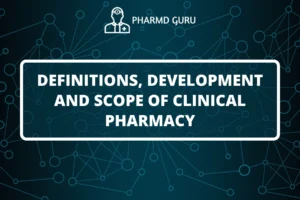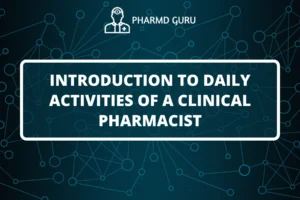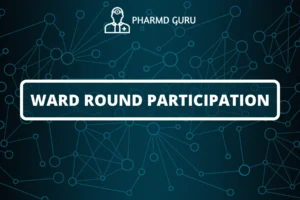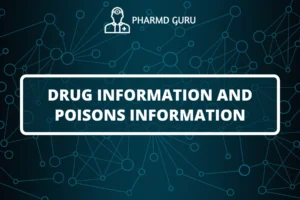Adverse drug reactions (ADRs) are unintended and harmful effects resulting from medication use. Managing ADRs is a critical aspect of healthcare, and it requires the expertise of healthcare professionals, including clinical pharmacists. In this article, we will explore the importance of adverse drug reaction management and the role of clinical pharmacists in ensuring patient safety.
SCROLL DOWN TO THE BOTTOM OF THE PAGE FOR ACTUAL NOTES
TABLE OF CONTENTS:
- Introduction
- Understanding Adverse Drug Reactions
- The Significance of ADR Management
- Early Identification and Reporting
- Assessment and Causality Determination
- Treatment and Intervention
- Preventive Strategies
- Collaboration and Communication
- Patient Education and Counseling
1. Introduction
Adverse drug reactions can occur with any medication and impact patient health and well-being. Effective management of ADRs is essential to minimize harm, optimize patient outcomes, and promote medication safety. Clinical pharmacists play a crucial role in identifying, assessing, and managing ADRs.
2. Understanding Adverse Drug Reactions
Adverse drug reactions refer to unintended and harmful effects that occur as a result of medication use. These reactions can range from mild and manageable side effects to severe allergic reactions or organ toxicity. It is important to differentiate ADRs from expected medication effects or underlying medical conditions.
3. The Significance of Adverse Drug Reaction Management
ADRs can significantly impact patient safety, treatment outcomes, and healthcare costs. Proper management of ADRs helps in early detection, appropriate intervention, prevention of further harm, and optimization of medication therapy. It also contributes to the overall improvement of medication safety practices.
4. Early Identification and Reporting
Clinical pharmacists are trained to recognize potential ADRs through active monitoring and assessment of patients’ medication regimens. They collaborate with healthcare teams to promptly identify and report suspected ADRs. Early identification allows for timely intervention and prevention of further harm.
5. Assessment and Causality Determination
Upon identification of a suspected ADR, clinical pharmacists play a key role in assessing the causality between the medication and the observed adverse event. They evaluate patient characteristics, medication history, timing of the reaction, and available evidence to determine the likelihood of the medication causing the ADR.
6. Treatment and Intervention
Once an ADR is confirmed, clinical pharmacists collaborate with healthcare teams to develop appropriate treatment strategies. This may involve discontinuing the causative medication, adjusting dosages, or implementing supportive measures to manage the adverse event effectively. Clinical pharmacists provide recommendations based on their knowledge of pharmacotherapy and patient-specific factors.
7. Preventive Strategies
ADRs can often be prevented through proactive measures. Clinical pharmacists play a vital role in implementing preventive strategies, such as medication reconciliation, reviewing patients’ medical histories, assessing potential drug-drug interactions, and providing education on medication adherence and precautions. By addressing risk factors and promoting safe medication use, clinical pharmacists contribute to ADR prevention.
8. Collaboration and Communication
ADR management requires collaboration and effective communication among healthcare professionals. Clinical pharmacists actively engage with physicians, nurses, and other members of the healthcare team to share their expertise, contribute to treatment decisions, and ensure coordinated care. This multidisciplinary approach optimizes patient safety and enhances the management of ADRs.
9. Patient Education and Counseling
Clinical pharmacists play a crucial role in educating and counseling patients about ADRs. They provide information on potential side effects, the importance of adherence to medication regimens, and steps to take in case of an adverse event. Patient education empowers individuals to recognize and report ADRs, promoting active involvement in their own healthcare.
ACTUAL NOTES




